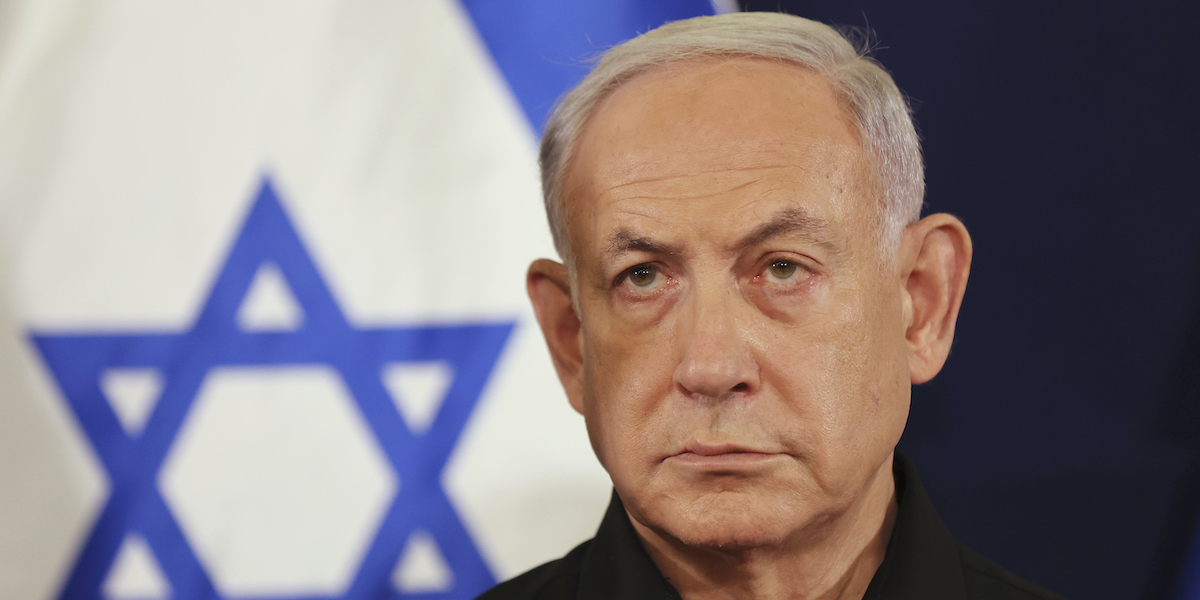Loading player
Israeli Prime Minister Benjamin Netanyahu held a press conference on Wednesday evening to announce that Israel had rejected the proposal of the radical Palestinian armed group Hamas for a ceasefire in the Gaza Strip, where a war between Israel has been ongoing for four months and Hamas. The group had proposed a 135-day, four-and-a-half-month truce, during which all Israeli hostages would be freed and the two sides would work on an agreement to end the war. He had also called for the Israeli army to withdraw completely from the Gaza Strip during the truce.
Netanyahu said that “surrendering to Hamas’s delusional conditions would lead to another massacre for Israel”, referring to the violent and unprecedented attacks carried out by Hamas on Israeli territory on October 7, which then began the current war. According to the Israeli prime minister, it is necessary to continue to put military pressure on Hamas to ensure that all the hostages held in the Strip are released (during the attacks of 7 October Hamas kidnapped more than 240 people in Israel, a hundred of whom were freed in previous truces).
Netanyahu also said that the only way to reach effective peace agreements is to “defeat Hamas”, and that Israel will continue to fight in the Strip until “total victory”. This position of Netanyahu has been highly contested for several weeks now by a part of Israeli public opinion, according to which the continuation of the fighting will significantly decrease the chances that the Israeli hostages held by Hamas will remain alive. This is above all the position of the hostages’ families, who have recently organized several protests against Netanyahu and his government.
The Hamas truce proposal was a response to another ceasefire proposal that was worked out last week during a series of negotiations between Israeli, Qatari, US and Egyptian diplomatic representatives. That agreement called for the start of a truce in the Gaza Strip and the release of all more than 130 Israeli hostages still held by Hamas, but no other details were released. Hamas’ response was expected on Sunday, but it only arrived on Tuesday evening, and Israel in turn responded a day later.
– Read also: There is still no agreement on a truce between Israel and Hamas
According to a document summarizing the proposal, seen by the news agency Reuters, Hamas proposed that the truce be divided into three phases of 45 days each. During the first phase, all Israeli women hostages, children under 19 and elderly and sick people would be freed, in exchange for Palestinian women and children held in Israeli prisons. Furthermore, Israel should have withdrawn troops from populated areas of the Strip, allowing the reconstruction of hospitals and refugee camps destroyed by the fighting to begin.
Between the first and second phases, Hamas requested that “indirect talks be held on the requirements necessary to end mutual military operations and return to total calm.”
The second phase would have involved the release of the men still held hostage, in exchange for 1,500 Palestinian prisoners held in Israeli prisons, and the complete withdrawal of Israel from the entire Gaza Strip. Finally, during the third phase Israel and Hamas were supposed to exchange the bodies of the hostages and killed soldiers.
For several weeks, negotiations for a new truce in the military operations of the Israeli army in the Gaza Strip have become more intense. The first truce lasted a week, between November 24th and 30th, and led to the release by Hamas of 105 hostages, of which 81 were Israelis. Israel had instead freed 240 Palestinian prisoners, as well as allowing the entry of humanitarian aid in greater quantities than in previous weeks.
– Read also: On the war in Gaza there is an increasing distance between Israel and the rest of the world
